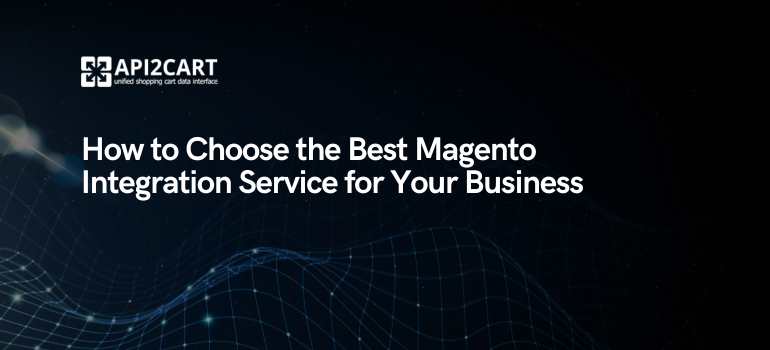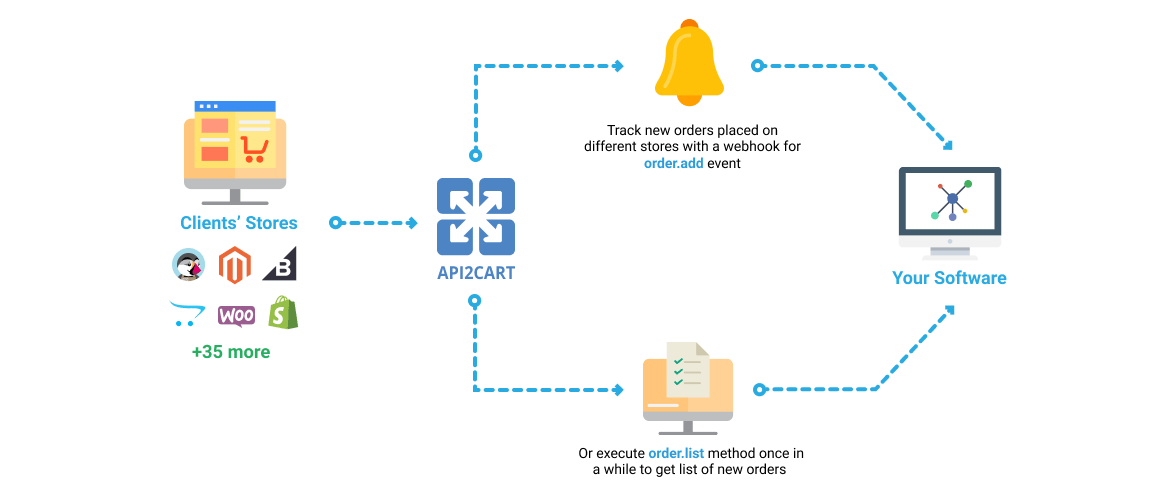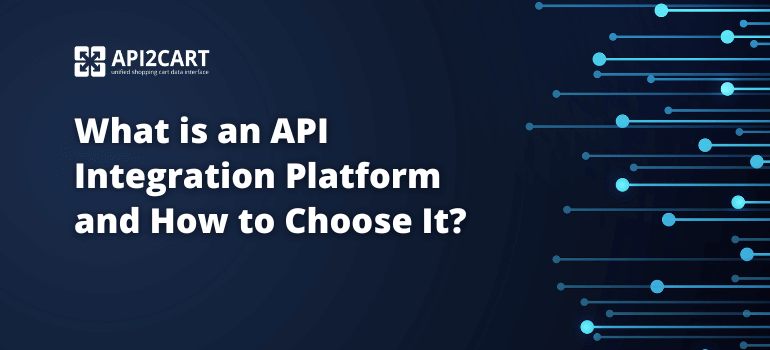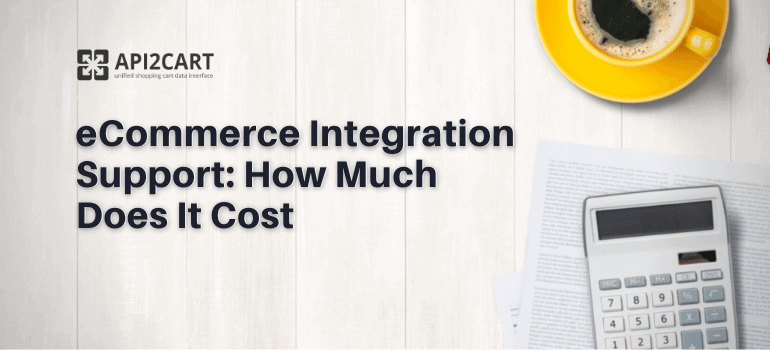
Leading eCommerce businesses require robust integration solutions that streamline operations and enhance customer experiences. eCommerce platforms, such as Magento (now it’s Adobe Commerce) must maintain seamless connections with external services, including ERP, CRM, logistics systems, and marketing tools, to optimize business processes.
Modern Magento integration services simplify data exchange management between this platform and third-party applications. They eliminate API complexities, reduce manual configurations, and lower technical costs for businesses.
This article explores the benefits of Magento integration, the best services for its implementation, key considerations when choosing the right solution, and how businesses can reduce costs, save time, and boost efficiency with a well-implemented integration strategy.
What is Magento Integration Service?
Magento integration involves connecting the platform with external services and programs to automate workflows and enhance efficiency. APIs enable seamless data exchange, minimizing manual tasks and ensuring real-time updates.
Companies looking to expand and optimize operations gain significant advantages by integrating Magento with ERP, CRM, logistics, and marketing platforms. This ensures smooth data flow across systems, streamlines processes, and enhances customer engagement.
A Magento integration service is a software solution or API-based platform that allows businesses and developers to connect Magento with other eCommerce platforms and marketplaces, including Shopify, WooCommerce, BigCommerce, OpenCart, PrestaShop, and others. This facilitates process automation, data synchronization, and improved efficiency in essential business functions.

The Importance of Magento Integration Services for Businesses
The rapidly evolving eCommerce landscape demands that businesses adopt efficient tools to manage their stores and operations while enhancing customer interactions. Magento integration services play a crucial role in establishing seamless connections between Magento and ERP, CRM, logistics providers, marketplaces, payment gateways, and other essential third-party services. These services help businesses automate operations, ensure data accuracy, and improve efficiency:
- Automating Business Operations
- Order Management: Orders are automatically processed and updated in real-time;
- Inventory Synchronization: The service ensures accurate inventory updates across all connected platforms;
- Shipping Automation: Automated logistics connections allow customers to receive their orders faster through integrated shipping providers;
- Customer Data Management: Customer details are synchronized across CRM and marketing tools.
- Multi-Platform Connectivity
- ERP systems;
- CRM platforms;
- Shipping and logistics services;
- Marketplaces;
- Payment gateways.
- Automated Order Processing
- Order creation, processing, and status updates;
- Order routing to warehouses, suppliers, or fulfillment centers;
- Automated email notifications and order confirmations.
- Inventory and Product Synchronization
- Automatic stock updates to prevent overselling;
- Bulk product import/export for managing extensive catalogs;
- Automated attribute mapping for different sales channels.
- Secure and Scalable API Access
- Security: Encryption and authentication methods, such as OAuth 2.0;
- Scalability: The ability to expand integration as the business grows;
- Reliability: High availability and failover mechanisms for uninterrupted operations.
Magento integration services enable businesses to streamline workflows, eliminating manual tasks and supporting automatic synchronization of key business data, including products, orders, inventory, customer details, and shipping information:
Magento integration services allow businesses to connect Magento to various third-party solutions, including:
Businesses can automate order fulfillment and management through features, such as:
Magento integration services ensure accurate stock levels and seamless data synchronization across platforms, including:
Properly implemented Magento integration ensures secure and scalable connectivity by incorporating:
Businesses require Magento integration services to optimize their operations and enhance efficiency through automated data flow between Magento and external platforms. These services not only enable real-time order synchronization, inventory management, and multi-platform connectivity but also improve customer interactions while reducing costs, fostering smoother business growth.

How to Choose the Best Magento Integration Service?
Selecting the right Magento integration service is a crucial decision for businesses looking to automate operations and ensure seamless data synchronization. To find the most effective solution, consider the following key factors:
- Ease of Integration and Documentation: A high-quality service should provide structured documentation, sample code, and testing capabilities before full deployment.
- Support for Different Magento Versions: Ensure that the platform is compatible with Magento 2 and other versions if your business operates multiple systems.
- API Functionality: The integration service should offer a comprehensive set of features, including order synchronization, product management, and customer data handling.
- Scalability and Performance: Choose a solution that can handle large volumes of requests without compromising performance.
- Security and Compliance: Security is a top priority, especially for handling payments and personal customer data. The service should comply with industry standards, such as PCI DSS and GDPR.
- Cost and Pricing Policy: Evaluate the balance between cost and features to select the most budget-friendly and efficient option.
Beyond these factors, consider the provider’s experience, level of support, and compatibility with your business needs. The right integration will enhance operational efficiency, improve customer experience, and support business scalability.
Using API2Cart for Magento Integration
API2Cart is a powerful solution for businesses looking to connect Magento with external systems. This unified API connects Magento and other 60+ eCommerce platforms and marketplaces, including Shopify, WooCommerce, BigCommerce, OpenCart, and PrestaShop. With API2Cart, companies can simplify integration and automate data exchange processes.
By implementing API2Cart, businesses can scale Magento-based solutions more effectively, reducing manual configuration and speeding up integration.
API2Cart offers 100+ API methods for seamless data management:
- Product and Inventory Management:
- product.list – Retrieve a list of Magento products;
- product.update – Update product details;
- product.add – Add new products to Magento.
- Order Automation:
- order.list – Fetch up-to-date Magento orders;
- order.update – Change order status (shipped, canceled);
- order.shipment.add – Add tracking numbers for shipping updates.
- Customer Data Synchronization:
- customer.list – Retrieve Magento customer details;
- customer.info – Access specific customer information and update.
- Shipping & Logistics Automation:
- order.shipment.list – Get shipment details;
- order.shipment.tracking.list – Monitor a list of tracking numbers and shipment statuses related to the order.

API2Cart simplifies Magento data synchronization across multiple eCommerce platforms, allowing businesses to automate product and order management, track inventory, synchronize customer data, and optimize logistics. This leads to reduced development costs and increased operational efficiency. To know more about how API2Cart works, book a FREE demo with our manager.
Conclusion
Modern eCommerce businesses require robust Magento integration solutions to streamline operations, improve efficiency, and enhance customer service. Companies that connect Magento to ERP, CRM, logistics providers, marketplaces, and payment gateways can automate workflows, reduce errors, and optimize operational performance.
API2Cart provides a unified API that simplifies data synchronization and automation between Magento and other eCommerce platforms, ensuring cost efficiency and top-tier security. Choosing the right integration solution enables businesses to scale effectively while maintaining seamless connectivity across platforms.



